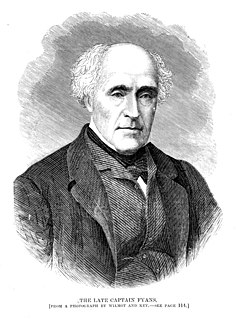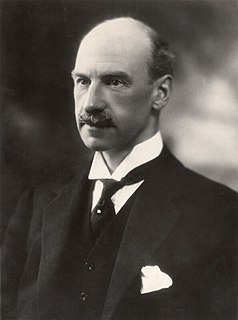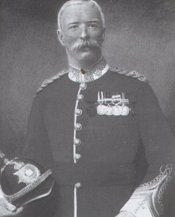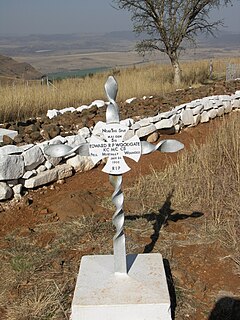 W
WLieutenant-General Sir Richard Neville Anderson was a senior officer of the British Army who served in the Second World War and later achieved high office in the 1960s.
 W
WSir Frederick Leopold Arthur, 2nd Baronet was a British soldier.
 W
WCadwallader Davis Blayney, 12th Baron Blayney, styled The Honourable from birth until 1834, was an Irish nobleman and politician.
 W
WGeorge Boscawen was a British politician who sat in the House of Commons from 1768 to 1780.
 W
WGeneral Henry William Breton was a British Army officer who became General Officer Commanding South-West District.
 W
WMajor General Raymond Briggs CB DSO was a senior British Army officer who fought in both World War I and World War II. During the latter he led the 1st Armoured Division at the Second Battle of El Alamein in late 1942, and throughout the subsequent Tunisian Campaign.
 W
WLieutenant-Colonel Lord Edward Cavendish MP was a 19th-century British politician, soldier, and nobleman.
 W
WJoseph Henry Collin VC was an English recipient of the Victoria Cross, the highest and most prestigious award for gallantry in the face of the enemy that can be awarded to British and Commonwealth forces.
 W
WColonel Sir Arthur Davidson, was a British soldier and courtier.
 W
WDenis Gage Deane-Tanner was the brother of William Desmond Taylor and nephew of Charles Kearns Deane Tanner.
 W
WFoster Fyans was a British Army soldier, penal colony administrator and public servant. He was acting commandant of the second convict settlement at Norfolk Island, the commandant of the Moreton Bay penal settlement at Brisbane, the first police magistrate at Geelong, and commissioner of crown lands for the Portland Bay pastoral district in the Port Phillip District of New South Wales. He is the great-great-grandfather of actor Sam Neill.
 W
WLt. Col. Gideon Gorrequer KH was an Anglo-French soldier who is best known for serving as the aide-de-camp and acting military secretary to Sir Hudson Lowe during the exile of Napoleon upon St. Helena, and the diary that he kept whilst in this position.
 W
WField Marshal Sir Frederick Paul Haines was a British Army officer. He fought in the First Anglo-Sikh War, in the Second Anglo-Sikh War and then in the Crimean War: during the latter conflict at the Battle of Inkerman, he held an important barrier on the post road guarding the approach to the 2nd Division camp for six hours. He served in India during the Indian Rebellion before becoming Commanding Officer of the 8th Regiment of Foot in the United Kingdom and then Commander of a Brigade in Ireland. He went on to be General Officer Commanding the Mysore Division of the Madras Army and then Quartermaster-General to the Forces in the United Kingdom. He returned to India to become Commander-in-Chief of the Madras Army in May 1871 and then Commander-in-Chief, India in April 1876: he commanded the forces in India during the Second Anglo-Afghan War and successfully argued for a large force being made available before mobilisation occurred, but once the war started the Governor-General of India, Lord Lytton, was inclined to by-pass Haines and deal direct with commanders in the field, causing friction between the two men.
 W
WGeneral Sir William O'Grady Haly was a British Army officer who was the Commander of the British Troops in Canada.
 W
WField Marshal Studholme Hodgson was a British Army officer who served during the 18th century. After serving as an Aide-de-Camp to the Duke of Cumberland at the Battle of Fontenoy during the War of the Austrian Succession and at the Battle of Culloden during the Jacobite Rebellion, he became correspondent to William Barrington, the Secretary at War, during the French and Indian War. He went on to command the British expedition which captured Belle Île in June 1761 during the Seven Years' War so enabling the British Government to use the island as a bargaining piece during the negotiations leading up to the Treaty of Paris in 1763.
 W
WGeneral Sir Archibald Hunter, was a senior officer in the British Army who distinguished himself during the Boer War. He was Governor of Omdurman, in Sudan, and later of Gibraltar.
 W
WSir Francis Stanley Jackson, known as the Honourable Stanley Jackson during his playing career, was an English cricketer, soldier and Conservative Party politician. He played in 20 Test matches for the England cricket team between 1893 and 1905.
 W
WThe British Army is the principal land warfare force of the United Kingdom, a part of the British Armed Forces along with the Royal Navy and the Royal Air Force. As of 2021, the British Army comprises 82,230 regular full-time personnel and 30,030 reserve personnel.
 W
WGeorge Blucher Heneage Marton was an English Conservative politician.
 W
WMajor James Edward Ignatius Masterson VC was an Irish recipient of the Victoria Cross, the highest and most prestigious award for gallantry in the face of the enemy that can be awarded to British and Commonwealth forces.
 W
WSurgeon General Sir James Mouat was an English recipient of the Victoria Cross, the highest and most prestigious award for gallantry in the face of the enemy that can be awarded to British and Commonwealth forces.
 W
WLord George Murray (1694-1760), sixth son of John Murray, 1st Duke of Atholl, was a Scottish nobleman and soldier who took part in the Jacobite rebellions of 1715, 1719, and played a senior role in that of 1745.
 W
WCharles FitzCharles, 1st Earl of Plymouth was the illegitimate son of King Charles II of England, by Catherine Pegge. He had a sister called Catherine FitzCharles who is believed to have become a nun. His mother went on to marry Sir Edward Greene of Samford in Essex, and had one child, Justinia Greene. His subsidiary titles were Viscount Totness and Baron Dartmouth.
 W
WGeneral Sir Neil Methuen Ritchie, was a British Army officer who saw service during both the world wars. He is most notable during the Second World War for commanding the British Eighth Army in the North African campaign from November 1941 until being dismissed in June 1942. Despite this, his career did not end. Richie later commanded XII Corps throughout the campaign in Northwest Europe, from June 1944 until Victory in Europe Day in May 1945.
 W
WLieutenant Colonel Douglas Charles Robinson was British army officer and a first-class cricketer who captained Gloucestershire. He also played for Essex, Marylebone Cricket Club and for the amateur Gentlemen and England XI teams.
 W
WMarshal of the Royal Air Force Sir John Maitland Salmond, was a British military officer who rose to high rank in the Royal Flying Corps and then the Royal Air Force. During the First World War he served as a squadron commander, a wing commander and then as General Officer Commanding the RAF on the Western Front towards the end of the war. He went on to be Air Officer Commanding British Forces in Iraq in the early 1920s when he halted a Turkish invasion and sought to put down a Kurdish uprising against King Faisal, the British-sponsored ruler of Iraq. He was Chief of the Air Staff in the early 1930s and bitterly opposed the position taken by British politicians at the World Disarmament Conference in Geneva, which would have led to the UK's complete aerial disarmament. In the event the talks broke down when Adolf Hitler withdrew from the Conference in October 1933.
 W
WMajor-General Sir Edward Robert Prevost Woodgate was an infantry officer in the British Army.